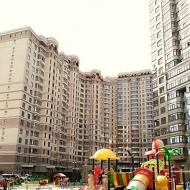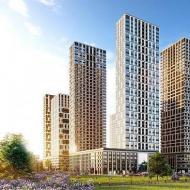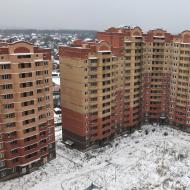
Countries with a high level of happiness. The happiest countries of the world
What are the main factors that determine the happiness of the nation? Doing these issues Organization of Economic Cooperation and Development. It is for this source that we will rely on our list of the most happy countries in the world. This rating is based on factors such as: education, employment, social satisfaction with life, population income, health condition and ambient, security. Here is a list of the 10 happiest countries in 2015. The rating of the happiness of the nation is determined by a 10-point scale, where 10 is an absolutely happy nation.
✰ ✰ ✰
10. Netherlands
The Dutch is one of the most satisfied life of people in the world. 75% of the working age of working age have a permanent job. The average family income in the Netherlands is $ 25493 per year. This amount that remains after paying all types of taxes. This is an important rate of living in the country. Holland is also considered a country with a high level of education, and literacy of the population (99%).
The Dutch support the balance between work and personal life to ensure strong relationships in the family. Only a few percent of people can be considered workaholics in the Netherlands.
In Holland, a high level of social assistance among people. They are always ready to help and come to help in need.
The average life expectancy of the Dutch is 81 years old. The country has one of best Systems Health in Europe.
✰ ✰ ✰
9. Sweden
 "Old Town" in Kostokholm (Sweden)
"Old Town" in Kostokholm (Sweden) Sweden is one of the least corrupt countries in the world. Transparent power is one of key factors For the welfare of citizens. The results of the last election in parliament have shown that most Swedes trust their government, 84% of the population is maintained. 44% of the Swedes aged 15 to 64 have paid work.
The number of workaholics in this country is also small. People tend to have enough wealth to devote much time to their family and rest. The literacy rate of the population in Sweden is 99%.
Stockholm, the capital of Sweden, is the best "green" capital in Europe. The city is known for a large number of green areas. Swedes have access to water with a high degree of cleaning throughout the country.
Organization economic Development and cooperation is trying to allocate the main factors that determine such a thing as "happiness of the nation". According to these factors, it amounted to a list of countries whose residents feel themselves happy. These factors include: life satisfaction, employment, income level, education, security, environmental condition and own health. The ranking received a 10-point scale - 10 points gets absolutely happy nation.
1. Norway (7,537)
Norway is the most attractive country for life throughout the world. In many other ratings, safe, healthy, happy and educated countries, it also constantly stays near the top or on it. Although Norway extracts the most natural gas in Northern Europe, but more than half of their own energy needs it covers at the expense of hydropower. The level of income from Norwegians is one of the highest in the world, and if they add low inflation (3%) and unemployment at the same level, then life in Norway will seem attractive. Here and the crime rate is very low, and even sit in a Norwegian prison for residents of some countries - as if to be in the resort.
The Norwegian government pays a lot of strength to equality of society. It provides medical insurance for disabled people and pensioners. There is a qualified and affordable education system in the country. Norway is the northern country, harsh, but in its own way very beautiful. There are many pure lakes rich in fish, very clean beautiful and deserted beaches. In the Norway near the polar circle, you can often observe an enchanting polar shine.
On average, the Norwegians live to 81 years old. The country employs mainly state clinics, therefore free medical services are available for all citizens. Treatment and pregnancy observation here also costs for free.
2. Denmark (7,522)

Another Scandinavian country - Denmark also does not disappear from the lists of the best countries in terms of education, health, security systems. Here the level of confidence in people is the highest, and to afford to trust the surrounding - already meaning to feel incredibly happy. For the Danes, the relationship means much more than money. Equality of floors, freedom of the press, the political activity of citizens here is also carefully observed. Danes communicate a lot even on working days, and also find time for hobbies and home affairs. In all, they try to see the positive side, so as not to spoil the good atmosphere. For recreation and communication, they are ready to arrange all sorts of public events.
Copenhagen became one of the most green capitals of the world. Here, most residents prefer to walk or ride bicycles for which a magnificent network of cycling paths is thought out. But taxes in Denmark are very high, although thanks to this here is hardly the best system of free medical service. The government of the country supports poor and unemployed.
Many women prefer shopping-tourism as the best wayTo relax, have fun, enjoy shopping. What could be pleasant ...
3. Iceland (7,504)

And again Scandinavia, now it island - the country is interesting and beautiful. Her nature, traditions and culture are unique. Icelanders are very hardworking, 80% of the population is engaged in paid work. Women's employment in Iceland is higher than on the continent and reaches 79%. But the islanders manage to maintain the right balance between personal life and work, which allows them to easier to restore their strength. There is a very high level of education in the country, because there is cheaper to get higher education than in most European countries. Applicants pay only an entrance fee. As a result, the literacy of the population of Iceland reaches 100%. But the crime rate is insignificant here.
For women, Iceland is also an excellent country: they can be seen here in various aspects of life, including in education and politics. So, the first president - a woman in Europe was elected in Iceland. Icelanders have an average life expectancy reached 82 years. Social conditions For life, there are great, wonderful health care, thanks to which child mortality here happens extremely rare.
4. Switzerland (7,494)

Located in the very center of Europe, the small and extremely beautiful Switzerland could not offer its citizens the happiest life. In this country, the transparent government-controlled government and the developed economy. The unemployment rate here is only 2.9%, and all salaries are very high. At the same time, taxes here are among the lowest on the continent.
Residents of Switzerland a large share of personal time dedicate to their families, classes with children, they are also not averse to having fun with friends, and in the evenings and weekends willingly remember their own hobbies. Being professionals in their own case, the Swiss prefer not to work a lot and for a long time, but to do everything professionally and efficiently, but in a reasonable time. Professionalism appears due to the quality of the local education system. Education in all educational institutions of Switzerland is not too expensive, and for foreign students, the government of the Confederation allocates scholarships. Swiss are among the leaders in professional training, introducing new technologies and improving productivity.
In the country, the level of crime is very small, so absolutely anywhere and at any time a person can feel safe. A very developed network of clinical institutions has been built in the country, which are capable of providing the highest quality and modern medical services. But for these services, citizens pay themselves using the local system medical insurance. Thanks to this and healthy alpine climate, the Swiss boasts excellent health. It is not surprising that most of them are satisfied with the quality of the atmosphere and water in their homeland.
Many of our compatriots have one steady stereotype concerning the size of consumption by Russian hot drinks. Do not surprise anyone ...
5. Finland (7,469)

Powerful social policy, affordable medicine, effective system Education, excellent working conditions - all this puts Suomi in a number of happiest countries. Curious, but in Finland, unlike most developed countries, children study at school only 9 years. But it includes the main subjects at school there are housekeeping and two foreign languages. Primary and higher education here is absolutely free not only for the Finns themselves, but also for exchange students or from the European Union. The level of employment of the Finnish population is very high and reaches 91%. In general, the Finns adopted a significant part family income Invest in vocational training and training. Thanks to this, young people get good professional skills, which increases their chances of employment.
Finns - people friendly, educated, they support close public relations. For them, the help of outsiders and socially useful work is not awesome. This improves the emotional background in society. Also, they strive to abide by the gender equality. So, in the Finnish government, 40% of posts are occupied by women. Very low in Finland, the level of maternal mortality, and the government conscientiously takes care of mothers with young children. Therefore, the mother in the country thousands of lakes feel like anywhere. Finns on average live 81 years old.
6. Netherlands (7,377)

The Dutch belongs to those people who are very satisfied with their lives, because 75% of the inhabitants of the country in working age have a permanent job, and the average annual income of the Dutch family is almost equal to 25.5 thousand dollars, and even less taxes. it the most important indicator standard of living. There is also practically high-speed literacy (99%) and a high level of education. The Dutch employs responsible, but also do not forget about the family, supporting strong relationships in it. But there are here and real workaholics, however, the number of them is very small. Residents of the Netherlands are always ready to provide each other social assistance, help especially needy. Here is one of the best health systems in Europe, so on average, the Dutch lives 81 years old.
7. Canada (7,316)

Canadians are even more satisfied with their lives even more than residents of the United States. The average annual budget of the Canadian family is solid 30 thousand dollars, which guarantees them a high standard of living. Own house and the car has more than 70% of Canadians. The crime rate in Canada is much lower than the southern neighbor, here you can not be afraid to be robbed. It should be noted the well-coordinated and prompt work of assistance services.
In Canada, one of the lowest levels of corruption in the world. Public services Constantly looking for new programs that would improve the well-being of citizens and further developed the country. In the event of unemployment growth, the government immediately comes to assist citizens, similar assistance, also has in the field of health. Canada employs many prestigious higher educational institutions in the world. Literacy level here reaches 99%. Thanks to the availability and quality of the education system, many foreigners are striving to study in Canada. There is no discrimination in the age basis, therefore, a person who has reached the 65-year-old age, the same chance of finding a job as younger competitors.
In Canada, very beautiful and in many ways untouched nature, which makes this country even more attractive. Here in each province there are many reserves and national parks, they are literally everywhere. Endless forests provide clean air in Canada.
8. New Zealand (7,314)

Surrounded by the sparkling snow caps of the mountains, surprisingly beautiful nature, exciting landscapes, a person cannot feel unhappy. To this should be added wealth of the local natural world, a very low level of environmental pollution. It is not surprising that the inhabitants of New Zealand consider themselves the most happy in the world. The one who visited this distant country notes the helpfulness and goodwill of New Zealanders in relations between themselves and strangers. Such behavior is partially cultivated by state social support, and on it every resident of the country can count in any complex situation. The hour of work on the islands is paid on average of $ 10-18, which allows citizens to be guaranteed to have their own home and car, as well as participate in private and state storage programs.
To determine the living standards of people, several techniques were invented, but mostly use the one that acts in the UN. On behalf of this organization ...
9. Australia (7,284)

Recently, Australia has nominated the most economically developed countries on the planet. 72% of the able-bodied Australians have a permanent job. The average annual income of the Australian family is impressive, exceeding the mark of 31 thousand dollars, which is a guarantee of a high standard of living. Already in high school, any specialty acquires 74% of Australian children, and being students, they continue to hone the received professional skills. Thanks to this preparation, university graduates can immediately work at the level of confident specialists. Also among the very best in the world here is the study of mathematics and other scientific disciplines. In an effort to get a great education, thousands of young people arrive annually in Australia.
The nature of Australia is unique, there are many wonders, famous to the whole world, such as a big barrier reef - the largest on the planet. It is perfectly visible from space. Only this natural object brings about $ 3 billion dollars to the treasury at the expense of a permanent inflow of tourists. There are also magnificent national parks, pink lakes, luxury beaches. This surprisingly beautiful country not only attend millions of tourists, but very many would like to live here.
The activities of the country's government are aimed at ensuring the well-being of the population that he completely trusts him. Therefore, almost all voters of the country come to the elections, showing enviable civil activity. Australians live on average 82 years old.
10. Sweden (7,284)

In Sweden, there is almost no such a phenomenon like corruption. The activity of power is transparent, and this is a key factor in ensuring civil welfare. The election results unequivocally emphasize the high level of public confidence in their government. 44% of the Swedes have paid work in working age. It is not accepted here to be workaholics, usually people are content with the existing one, which is enough for concern about their family and good rest. Only 1% of the population of the kingdom can be considered illiterate.
Stockholm is a generally accepted the most "green" European capital, green areas are arranged there. In any corner of the country, the Swedes use well-purified water, so there are on average to live up to 82 years. Every year, the Government of the country spends up to 9% of GDP for health care, whose task is to provide citizens to the highest quality services.
), which evaluates the happiness of residents of 156 countries and the happiness of immigrants in 117 countries. Special attention The report of this year was paid to migration within countries and between countries.
Source: facebook.com/happinessrpt/
The happiest countries 2018
In the ranking of the most happy countries of 2018, Finland was published. The tent of the leaders does not change for 2 years, they only change in places. Following Finland, Norway is located, Denmark, Iceland, Switzerland. These countries hold in the top of the rating of happiness for the last four years.
Six criteria from which the authors of the report are repelled: per capita GDP, life expectancy, social support, personal freedom, trust and generosity. All leading countries have high values \u200b\u200bof these indicators.
World Hare Rating - 2018

Who and how many positions were changed in the rating of happiness
An analysis of changes from 2008-2010 to 2015-2017 showed that the most of all in the ranking was rising (at 17 positions), and the greatest fall showed Venezuela - 2.2 points on a scale from 0 to 10.
Changing the index of the happiness of countries of the world from 2008-2010 to 2015-2017

Source: WORLD HAPPINESS REPORT 2018
How the happiness index changed on individual countries, can be seen on pages 10-15 (PDF).
Rating of happiness immigrants
Perhaps the most striking conclusion of the report is that the rating of countries by the degree of happiness of their immigrant population is almost the same as for the rest of the population. Ten happiest countries in general ranking also take ten of the eleven upper places in the rating of happiness of immigrants. Finland is on top of both ratings.
The proximity of these two ratings shows that happiness can change and varies depending on the quality of society in which people live. The happiness of immigrants, as well as local, depends on a number of features of the social structure, emerging far beyond higher revenues, which are traditionally considered a source of encouraging migration. Countries with the happiest immigrants are not the richest countries. These are countries with a more balanced set of social and institutional support for best Life. Nevertheless, the approach of happiness of the immigrant Fortunately the local population is not complete, the effect of the "track" of the source of the source of immigration remains. This effect varies in the range of 10-25%. This explains why the happiness of the immigrant is less than happiness in residents of local countries.
The report also covered migration from rural areas to cities based on recent Chinese experience, which is called the greatest migration in history. The experience of such migration also demonstrates the approach of migrants to satisfaction with the life of citizens, as in international migration, but the remaining is still less than the average in the city, the feeling of happiness.

The importance of social factors
The report also addresses the importance of social factors of happiness as migrants and not migrants. The positions of Latin American countries are due to the greatest spiritual warmth of family and other social relationship. The final part of the report on world happiness 2018 focuses on three health problems threatening happiness:, drug addiction and. Despite the global context, most of the actual data and discussions focus on the United States, where the prevalence of all three problems is growing faster than most other countries.
History of World Warness Report
Report on world happiness (World Happiness Report) was first released in April 2012 a network of solutions for the UN SDSN (UN SDSN).
In July 2011, the UN General Assembly adopted a resolution in which the member countries were asked to assess the happiness of their people and use it to lead their public Policy. On April 2, 2012, the first high-level meeting of the UN "Happiness and well-being: definition of a new economic paradigm" was chaired by Prime Minister Dzhigme Tinley from Bhutan. This is the only country that accepted gross national happiness instead of gross domestic product as the main development indicator.
When calculating the level of happiness, six indicators are taken into account
1. GDP per capita (GDP PER CAPITA.) Taking into account domestic prices (PPS) in USD 2011 (World Bank, September 2017). The equation uses the natural logarithm of the GDP per capita, since this form corresponds to the data much better than the per capita GDP (PDF, rating on page 57-59).
2. Expected duration healthy Life (healthy Life EXpeccy.) (World Health Organization, 2012, Indicators human Development, 2017). Life expectancy in this year * (Expected duration of healthy life in 2012 / Life expectancy in 2012) (PDF, rating on page 63-65).
3. Social support (social Support) - The average national answer to the question (about or 1) Gallup World Poll (GWP) "If you had a problem, could you count on helping relatives or friends if necessary?" (If you Were In Trouble, Do You Have Related On To Help You Whenever You Need Them, OR NOT?) (PDF, Ranking on page 60-62).
4. Freedom of life choice(freedom to Make Life Choices). Middle National Answer to Question (0 or 1) Gallup World Poll (GWP): "Are you satisfied or not satisfied with the freedom of choosing what you do with your life?" (Are you satisfied or dissatisfied with your favoredom to choose what you do with your your life?) (PDF, rating on page 66-68).
5. Generosity (generosity): "Did you spend money for charity last month?" (Generosity Is The Residual Of Regressing National Average of Response to the GWP Question "Have You Donated Money To a Charity In The Past Month?" ON GDP PER CAPITA.) (PDF, Rating on page 69-71).
6. Perception of corruption (pERCEPTIONS OF CORRUPTION) - Middle National Answer to Question (About or 1) Gallup World Poll (GWP): Is Corruption in Government or Not? " ("Is Corruption Widespread Throughout The Government or Not?") And "Were corruption in business or not?" ("Is Corruption Widespread Within Busineses or Not?"). Where there is no data on corruption in the government, the perception of corruption in business is used as a common effect of perception of corruption. (PDF, rating on page 72-74).
In addition, the result was influenced by a subjective feeling of happiness or misfortune. For example, answers were taken into account on questions about the last day: laughed? Was the feeling of happiness? Have worried about concern? anger? Each country is also compared with a hypothetical country called "Antiutopia". Antiutopia represents the lowest national averages for each key variable.
When preparing the publishing TheWorldonly text was used:
Helliwell, J., Layard, R., & Sachs, J. (2018). WORLD HAPPINESS REPORT 2018, NEW YORK: SUSTAINABLE DEVELOPMENT SOLUTIONS NETWORK.
About the Corruption Corruption Index from Transparency International read.
What are the main factors that determine the happiness of residents of a certain country? The best life index was developed by the Organization for Economic Cooperation and Development (OECD). With its help, the happiest places on Earth are determined annually. This coefficient is based on several factors including education, employment, life satisfaction, income, health and environment. I present to your attention a list of 10 happiest countries in the world. The coefficient of happiness reflects the assessment of his life by residents of the country. Its value ranges from 0 to 10.
Netherlands, the coefficient of happiness: 7.4
The Dutch is one of the most satisfied people in the world. 75% of the residents of the country aged 15 to 64 have a job. The average family income in the Netherlands after paying all types of taxes and insurance is $ 25,493. This is a rather important indicator of the standard of living of the country. The Dutch consider education an important part of life, and literacy rate in the Netherlands is 99%. 
The Dutch pays a lot of attention to equilibrium work and recreation, which has a positive effect on the level of happiness. Only a few percent of the Dutch work more than 7 hours a day. Both women and men give enough care and children. Social support is quite developed in the country, people try to help each other and maintain in difficult situations. Thanks to a very developed health system, the average life expectancy of a citizen of the Netherlands is 81 years. Without a doubt, this is one of the happiest countries in the world.
Sweden, happiness ratio: 7.4
Sweden is one of the least corrupt countries in the world. Transparent government is one of the key factors for the well-being of citizens. Sweden also has a rather high voter activity - 85% of the country's residents participate in the elections and trust the chosen government. As for employment, 74% of the Swedes aged 15-64 have a job. Sweden also has a high cumulative clean income At $ 2304 US dollars and high standards of life.
In Sweden, a long working day is also not practiced, which guarantees the best balance of service life. Swedish parents have enough time to raise their children. The literacy rate in the country reaches an impressive 99%. The mandatory system of studying the second language in addition to Swedish provides the best language skills. Stockholm, the capital of Sweden - the first green capital in Europe. The city is known for a large number of green areas and parks. Swedes also have access to the most pure water water in the world. The average life expectancy of the Swedes is 82 years old. The government spends 9% of national GDP (558.9 billion US dollars) for health care, to provide good medical care to its citizens.
Finland, level of happiness: 7.4
Advanced education system, affordable health, strong social support and better conditions Labor make Finland one of the happiest countries in the world. Unlike other developed countries, school hours in Finland are much shorter. At the same time, an advanced educational system is provided, the excellent relations of teachers with students and the control of well-being for all children. 83% of Finns have high-quality higher education. Finland has an average level of employment is 70%. Finns have a cumulative net annual income of $ 25,739 per family. They invest the main part of their income into education, receiving new skills and skills. Well-educated Finns are also very friendly. They support strong social ties and help other people that supports a positive atmosphere in society. 
In Finland, gender equality is also observed - 40% of seats in the Finnish government are occupied by women. Finland also has a very low level of child mortality due to care for children and an advanced medical system. This makes Finland one of the best places for motherhood. Finns are one of the most healthy people in the world, and the average life expectancy is 81 years. Without a doubt, this is one of the happiest countries in the world.
Australia, the coefficient of happiness: 7.4
With GDP at 1.5 trillion US dollars - Australia is one of the richest economies in the world. 72% of Australians aged 15 to 64 years have a job. The cumulative net income of the Australians is $ 31197 per year per family, allowing you to maintain a higher standard of living. Australia is also a very low risk of working loss. The world-class education system in Australia practices the attraction of foreigners as teachers. Special program In Australian schools, it allows students to get a specific working skill that allows you to work immediately upon completion of learning. Such programs in Australia not only open the world of wide opportunities, but also form productive labor resources. 
Australia is also home to many natural wonders and attractions. Large barrier reef in Queensland is the largest coral system on Earth 2300 km long, noticeable even from space. There are also beautiful beaches, pink lakes and amazing national parks, which makes Australia a popular tourist destination. The voter turnout in the country is 93%, indicating high civil activity. The openness of the government also guarantees the well-being of citizens. Australians are very satisfied with their lives. They support good relations with each other, and the average life expectancy is 82 years.
Iceland, the coefficient of happiness: 7.5
Iceland is a rich, beautiful, peaceful and educated country. It is not surprising that one of the happiest people on Earth live here. Iceland high percent Working population, where 80% of citizens have a job. The employment rate of women in Iceland is also one of the highest (more than 79%). But Icelanders retain the excellent equilibrium of duration of work and family matters. The rate of education in the country is quite high thanks to the availability of a university diploma, where students need to pay only an entrance fee. The crime rate in Iceland is one of the lowest in the world, which plays an important role in the well-being of citizens. 
Iceland is the ideal of gender equality in the world where women are present in all major areas as politics, employment and education. The first female president in Europe was elected in Iceland in the distant 1980. The average life expectancy of Icelanders is 82 years. A favorable environment and clean air are important factors in the health of citizens, as well as an organized health system. The level of infant mortality in Iceland is also very low.
Austria, the coefficient of happiness: 7.5
Safety is an important factor that determines the happiness of citizens in the country. In this regard, Austria is one of the best places for life due to a very low level of crime. The country is also known for cleanliness and beautiful landscapes. Employment level in Austria is 73%. Even fully occupied workers find time for socializing, raising children and their hobbies. Austrians also enjoy a large number of holidays and weekends, as one of the most relaxed citizens in the world. The country has a developed education and health care system, rich culture and many attractions. The capital of Austria Vienna is known for its historical architecture, outstanding musical concerts and the highest quality of life. 
Austria is a surprisingly clean and tidy country with clean air, where there are strict laws for environmental protection. Austrians are also satisfied with the quality of drinking water and urban parks. Public transport system here is one of the most effective in the world. The average life expectancy of Austrians is 82 years old. There is an extensive network of hospitals and many private doctors. All Austrian citizens receive free access to healthcare.
Denmark, the coefficient of happiness: 7.6
Denmark consistently occupies leading places in many areas, including security, confidence in government, health, wealth and education. Trust is the main factor that the Danes makes one of the happiest people in the world. Danes support a high level of confidence not only to the state, but also to each other. They pay more attention to relationships, not money. Powerful social support makes the life of the Danes more relaxed, where the sense of human equality dominates. 
The government contributes to the well-being of citizens by all means, receiving confidence in response and high voter turnover of 88%. Even in the working days, the Danes are trying to pay attention to socialization, raising children, home care and their own hobby. This allows you to prevent depression and concern in everyday life. Even during the winter season, the Danes are going to parks and on the streets to spend time together. Copenhagen, the capital of Denmark is one of the greatest cities in the world. Most residents in the city are moving on foot, or on bicycles. The city has wonderful cycling routes. Thanks to environmental policies, the city plans to achieve a zero carbon emissions balance by 2025. Taxes in Denmark are very high, but the government offers free medical care and education for citizens. Denmark rightfully occupies its place in the list of the happiest countries of the world.
Canada, Happiness Index: 7.6
Compared to other North American countries, Canadians enjoy life satisfaction and more positive emotions. The country is high total income For a family of $ 30,000. More than 70% of Canadians own their own home and car. The country is observed for the balance of the working day and everyday life so that people have time to rest and raising children. Canadians are not afraid of robbery due to low crime. Canada is also one of the least corrupt countries in the world. The authorities here seek to introduce new programs for the development of the country and for the well-being of citizens. The Canadian government also provides greater support for citizens in the event of unemployment and health issues. This is a country with one of the best medical systems in the world. 
Due to the productive educational system, literacy reaches 99%. An affordable and extraordinary education system in Canada also attracts foreigners from around the world. In Canada, there is no discrimination by age. Citizens up to 65 years old easily receive vacancies and continue to work. Another important factor is natural beauty, a variety of national parks and attractions. The abundance of forests and parks throughout the country contributes to maintaining high air quality.
Norway, happiness index: 7.7
Undoubtedly, Norway is one of the happiest countries in the world. Norway takes top places in the lists of the happiest, safest, most healthy and well-educated countries. The unemployment rate here is only 3.4%. The working population enjoys the five weeks of official holidays annually. In Norway, an extremely low level of crime and corruption. The Norwegian government has committed an equal advantage for all members of society. Older people and disabled will also receive health insurance and retirement. The education system in Norway is inexpensive and exceptional in quality. 
Norway is also famous for its natural beauty. The country is home to thousands of lakes, national parks and breathtaking fjords. Lofoten Archipelago in Norway is a great place to observe the Northern Lights. The average life expectancy of Norwegians is 81 years. Most hospitals in Norway are state, free providing basic medical services.
Switzerland, happiness index: 7.8
Little and beautiful Switzerland - the birthplace of the happiest people on earth. The country has a powerful economy and transparent government. The unemployment rate in Switzerland is only 2.9%, the tax system is quite democratic, and wage One of the highest in the world. Most Swiss citizens try to keep the balance between work and recreation with family, raising children and communicate with friends. People try to play sports daily and lead a healthy lifestyle. The crime rate in Switzerland is extremely low, and cities are clean and tidy. All educational institutions in Switzerland are relatively inexpensive. The government also offers a scholarship for foreign students. 
In Switzerland, an extensive network of hospitals is developed with an excellent attitude towards patients. Most services are paid through the health insurance system. It is not surprising that Swiss citizens are one of the most healthy people in the world. The average life expectancy of the Swiss is 83 years old. Most citizens are satisfied with the quality of water and air in the country. If you have not yet found the answer to the question "What is happiness?" The article on LiFeglobe can help.
Compared to last year of the Russian Federation lost 10 points.
This time, the first place went to Finland, which rose into four positions up compared to last year and overtook the former leader - Norway. According to experts, the victory of the country provided the highest level social support and confidence in the state and at the same time the lowest level of corruption.
In turn, Norway and the third place of Denmark took excellent indicators in the field of health, life expectancy, incomes of the population and pension provision of citizens.
The top five leaders are closed by Iceland and Switzerland, which do not lose their position for the last three years.

The most unfortunate country was the East African state of Burundi. There is still political instability, martialctions, high level of corruption, low standard of living.
"Unfortunately, from year to year we see the same picture. In African countries, nothing changes, people continue to suffer there, "experts noted.

As for other countries, the United States has rolled back from the 14th to the 18th due to the deterioration of public health: in particular, the growth of obesity and depression. "The US government should pay attention not to politics, but on the health of citizens who rapidly worsens every year. People are increasingly walking their problems. We also noted an increase in the number of suicides in the country, "the report says.
Russia ranked in the ranking 59th, which is 10 points below last year's result. According to experts, such a fall is associated primarily with small pensions, low population revenues and a low level of social support.

The inhabitants of Belarus and Ukraine did not become happier: the first took the 73rd rating position (-5 points in comparison with last year), the second - 138th (-7).
"We regret that Ukraine continues to lose its position in our list. The standard of living of citizens of this country continues to fall. We can also mention an unstable political situation and the lack of confidence of power by the population, "experts say.
Top 10 happiest countries
- Finland
2. Norway
3. Denmark
4. Iceland
5. Switzerland
6. Netherlands
7. Canada
8. New Zealand
9. Sweden
10. Australia
Top 10 most unfortunate countries
- Malawi
148. Haiti.
149. Liberia
150. Syria
151. Rwanda
152. Yemen.
153. Tanzania
154. South Sudan
155. Central African Republic
156. Burundi
As believed
UN researrs compared 156 countries of the world in the following parameters: the average level of income of the population, the duration of healthy life, the level of social security and charity, the level of freedom and confidence in the government.
















